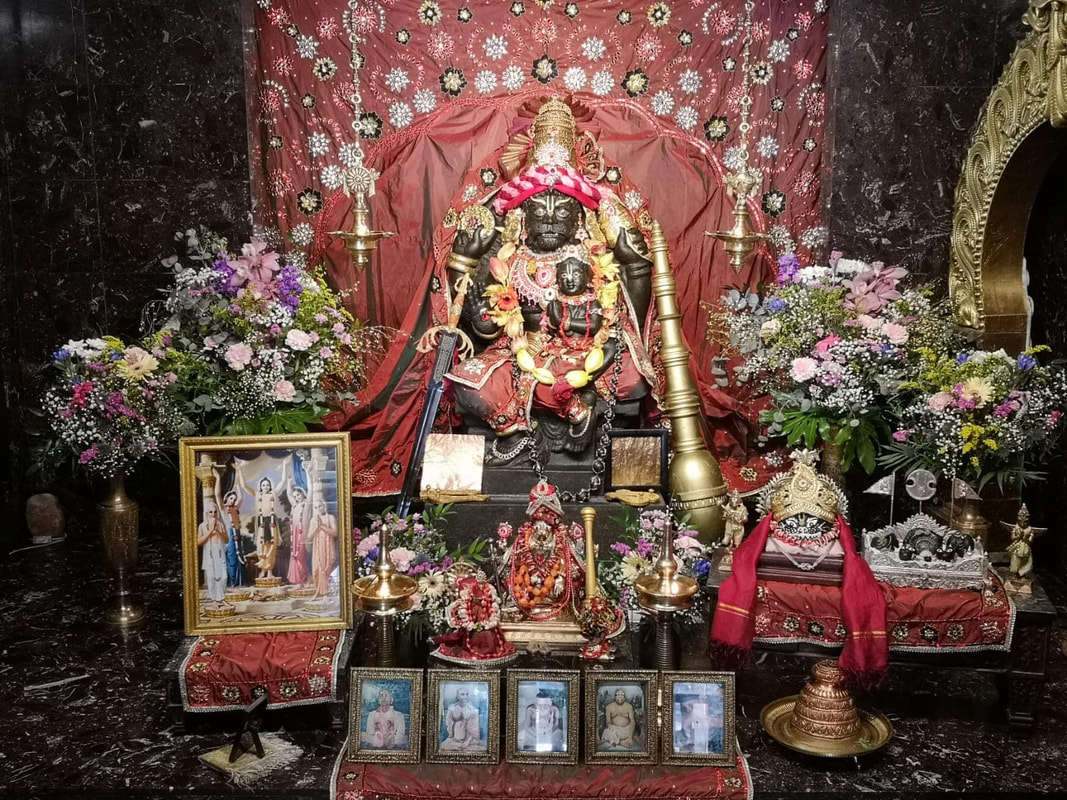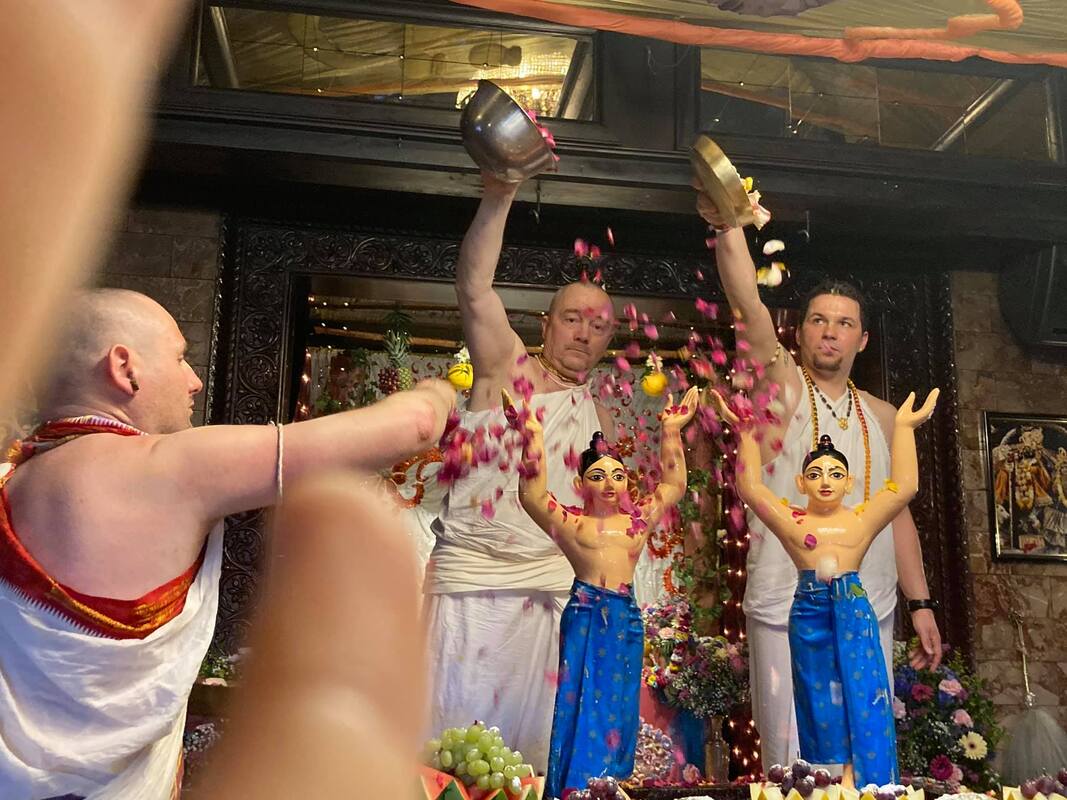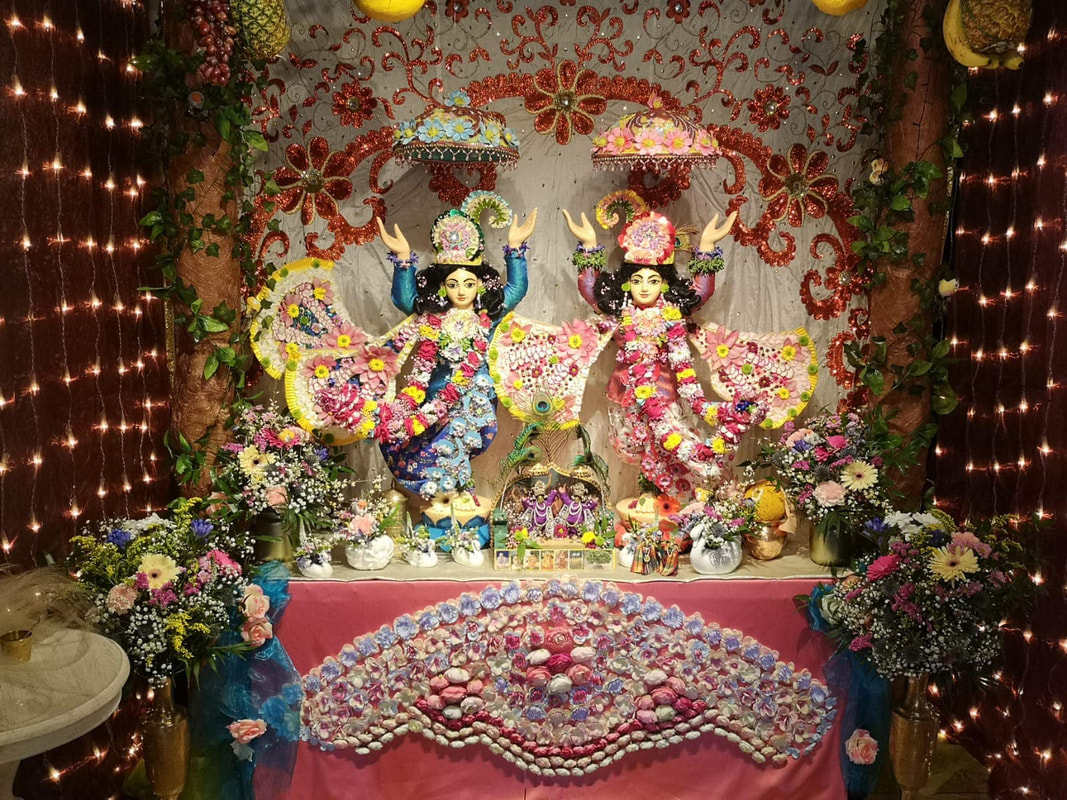I kept myself busy with temple programs, mataji sangas, private discussions and online programs over zoom. And I continued working on my next book entitled "Entering the Grihastha Ashrama"....
We certainly would get offended if somebody called us a grihamedhi - a householder who lives only for sense gratification. Once when offering a seminar on this topic, a participant made the following comment: "Actually, we are not even on the level of grihamedhis. They don't get divorced, they may follow many rules and regulations and may, in general terms, lead a pious life. But our present level of commitment is even lower than that!" This comment made me realise how it indeed requires a deep transformation of our attitudes, desires, expectations, approaches, visions and goals in order to shape our family life into an ashrama. Then there will certainly be no question of divorce.
Our high divorce rate in ISKCON clearly demonstrates that we have some learning to do, and it is not surprising - after all, we are a young society. Most of us come from mundane family backgrounds and we are surrounded by a materialistic understanding and practice of family life. Many of us may even come from very dysfunctional or broken homes, devoid of healthy family values and affectionate bonds. We are carrying many material impressions and conditionings which are very subtle and yet so deeply ingrained within our hearts and minds. After all, we are a product of our surroundings, our association and the massive materialistic propaganda which constantly bombards us and influences our consciousness.
Most devotees in ISKCON enter married life without preparation. They don't undergo any kind of training or education whatsoever, and don't understand the importance of accepting guidance from those who are more experienced in navigating this important phase of our life. However, entering household life in Krishna consciousness is a true challenge which requires internal work based on education, systematic training and ongoing guidance. Our mundane approach to family life, which includes our expectations, desires, priorities, attitudes and visions, has to be re-shaped and gradually transformed. How else can such transformation be inspired and guided in the right direction, if not by education and systematic training?! This is our only hope.
Such transformation is a gradual process and may take many years, even generations, in order to arrive at the point where most devotees' family life is an ashrama - a lifestyle fully conducive to developing pure bhakti. We are only now embarking on this gradual, transformational journey within our society of devotees. The first step in this direction is to clearly understand and accept Krishna's recommendations in regards to entering family life. We will have to understand that the mindset and approach to the grihastha-ashrama is very different than in mundane life. If we maintain a material mindset and approach to family life, it will be difficult to mould it into an ashrama.
If this education is not offered, devotees may go with the flow and accept all kinds of modern trends, seeing them as progressive and cool - not realising that they promote the opposite world view of what we want to cultivate as Vaishnavas. We may encounter the danger of watering down the process of Krishna consciousness, and our spiritual strength may weaken or be completely lost. In this way, we can understand that a Vaishnava society cannot sustain itself without cultural education.
Once we introduce this crucial systematic education and training to our young generation who are just beginning their spiritual journey, then they can gradually move closer towards a family life which is arranged as an ashrama. And when their children have children, from generation to generation they will gradually transform their homes into a household life based on spiritual values and worldviews.
For Gaur Purnima we had a long lecture in the morning, and the main program started in the afternoon with an abhishek of the large Deities accompanied by beautiful kirtan followed by Gaur Katha, a heart-moving drama played by the senior devotees depicting Lord Nityananda meeting Mahaprabhu, a final Gaur Artik kirtan and feast. Despite the Corona restrictions we managed to have a beautiful festival with our main community members of around 45 devotees participating, and everybody felt very satisfied and joyful...
Your servant, Devaki dd





 RSS Feed
RSS Feed
